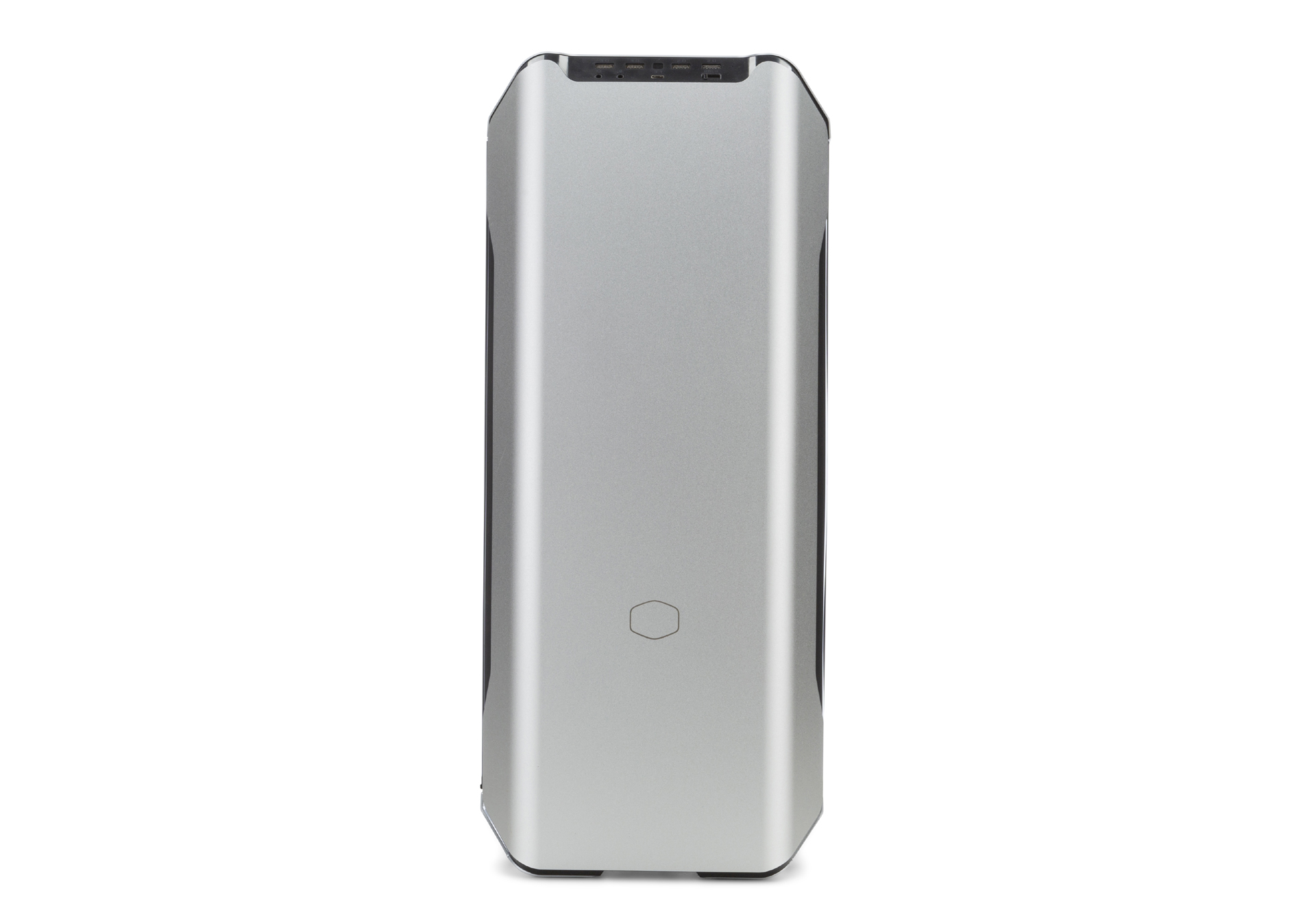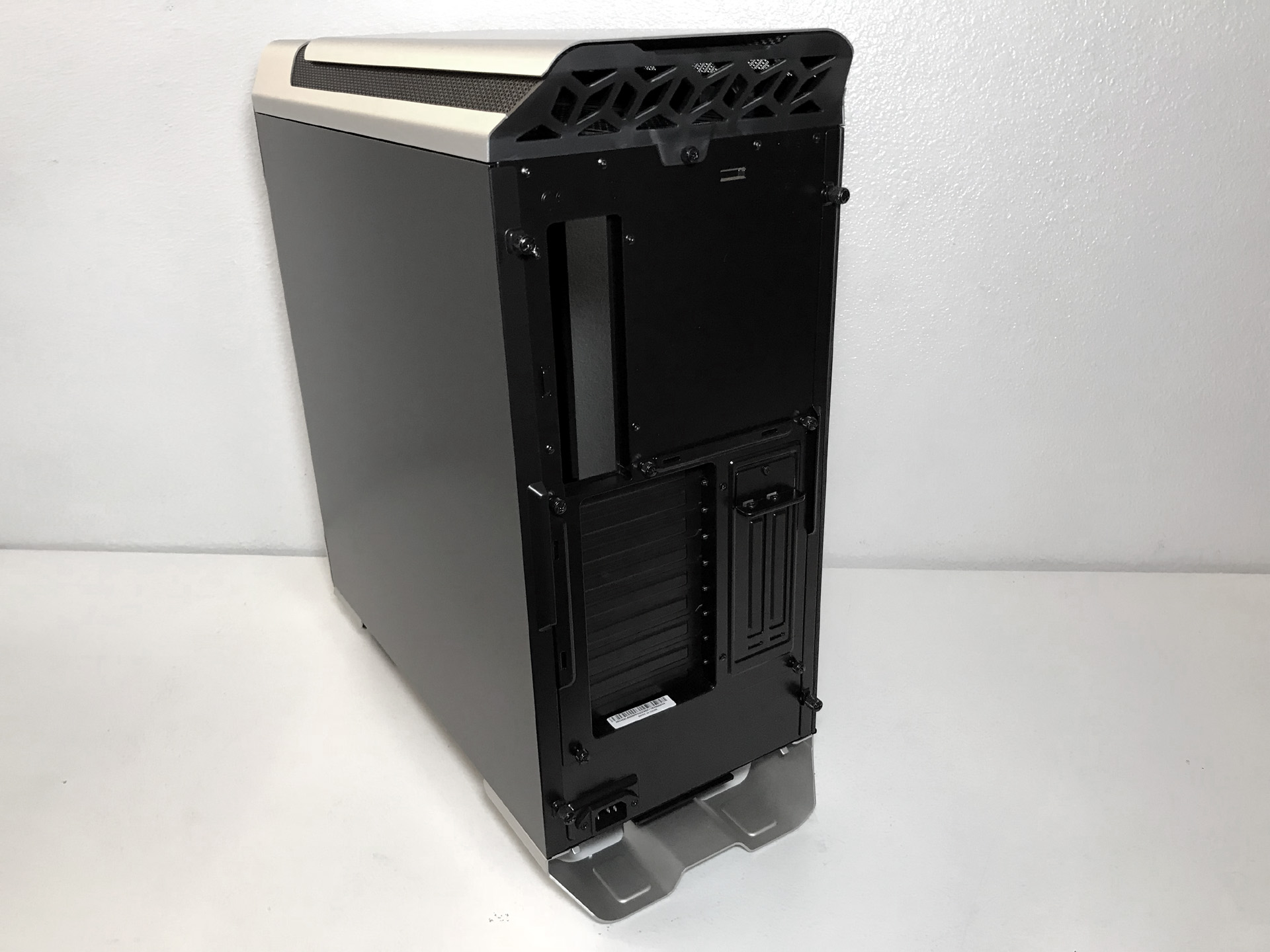Tom's Hardware Verdict
Even with its premium asking price, the quality construction and strong thermal performance more than justify the asking price.
Pros
- +
Excellent Thermal Performance
- +
Quiet operation under full load
- +
Modular I/O Design
- +
USB 3.1 Type C
- +
Proximity sensor
- +
Multiple GPU configurations
- +
Innovative hard drive mounting system
- +
Aluminum panels / feet
Cons
- -
Proximity sensor a bit too sensitive
- -
No remote PSU switch
Why you can trust Tom's Hardware
Features and Specifications
If you are in the market for a high performance gaming chassis but you don't necessarily want a case that looks like it belongs in a competitive eSports tournament, Cooler Master's MasterCase SL600M might be just what you are looking for. This gorgeous aluminum-clad chassis has more than enough cooling performance to keep a high-end system cool and noise output to a minimum, but, at $200 (£153), it comes with a premium price tag as well.
Specifications
| Type | Mid-Tower ATX |
| Motherboard Support | Mini-ITX, Micro-ATX, ATX (E-ATX support up to 12 x 10.7 inches) |
| Dimensions (HxWxD) | 22.6 x 9.6 x 21.5 inches (573 x 242 x 544mm) |
| Space Above Motherboard | 1.5 inches + 1.5 inches above the frame (78mm) |
| Card Length | 12.5 inches (318mm) |
| CPU Cooler Height | 7.5 inches (191mm) |
| Power Supply Format | PS2-Style up to 200mm |
| Weight | 29.5lbs (13.4kg) |
| External Bays | ✗ |
| Internal Bays | 4x 3.5 inches8x 2.5 inches (x4 converted from 3.5) |
| Card Slots | 9 + 2 vertical |
| Ports/Jacks | 1x USB 3.1 Type C2x USB 3.02x USB 2.0audio/mic jacks |
| Other | Proximity sensor for lighted USB ports |
| Front Fans | ✗ |
| Rear Fans | ✗ |
| Top Fans | ✗ (Up to 3x 120, two 140 / 200mm) |
| Bottom Fans | 2x 200mm |
| Side Fans | ✗ |
| Dampening | ✗ |
| Warranty | 2 years, limited |
Exterior
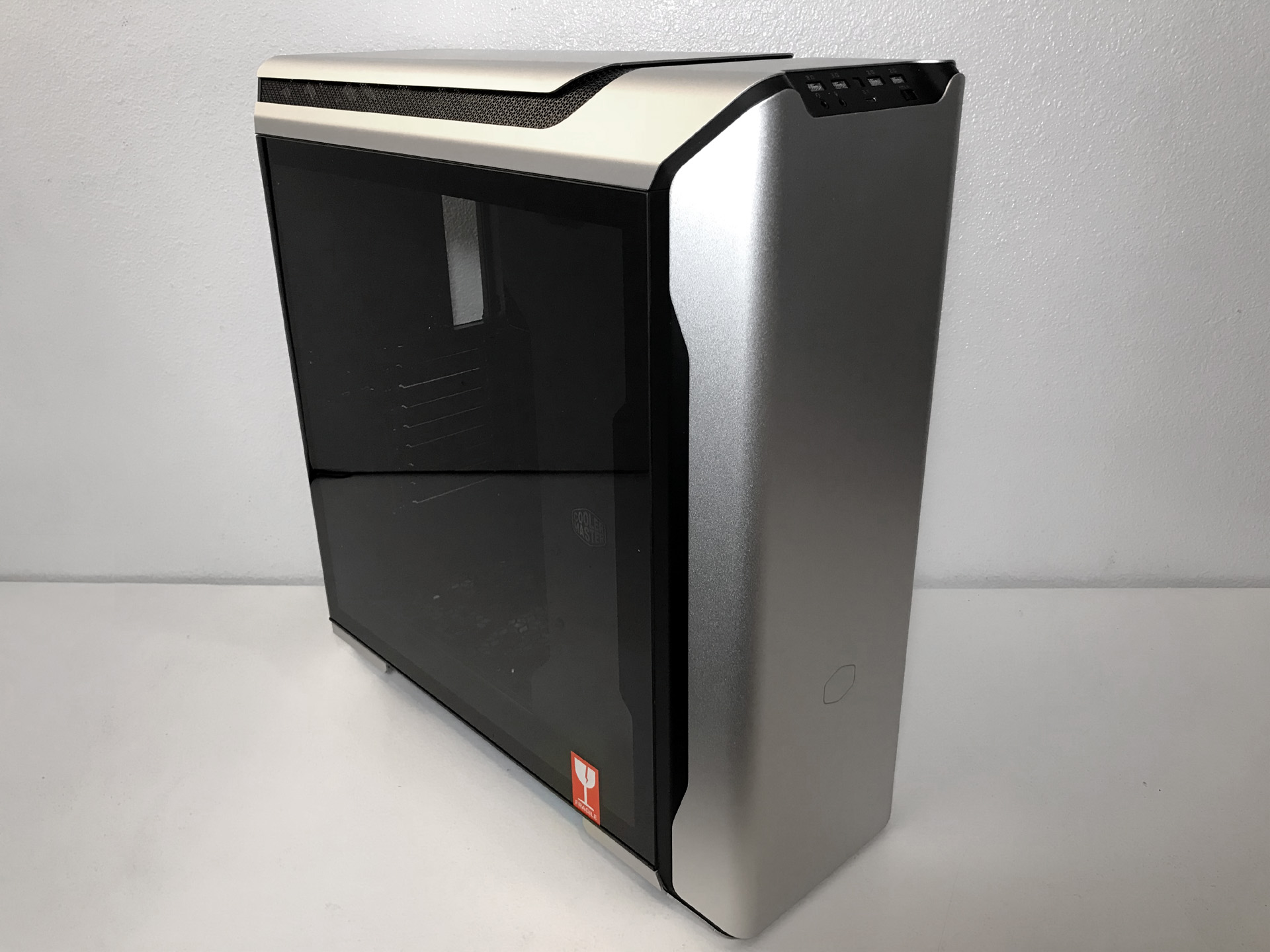
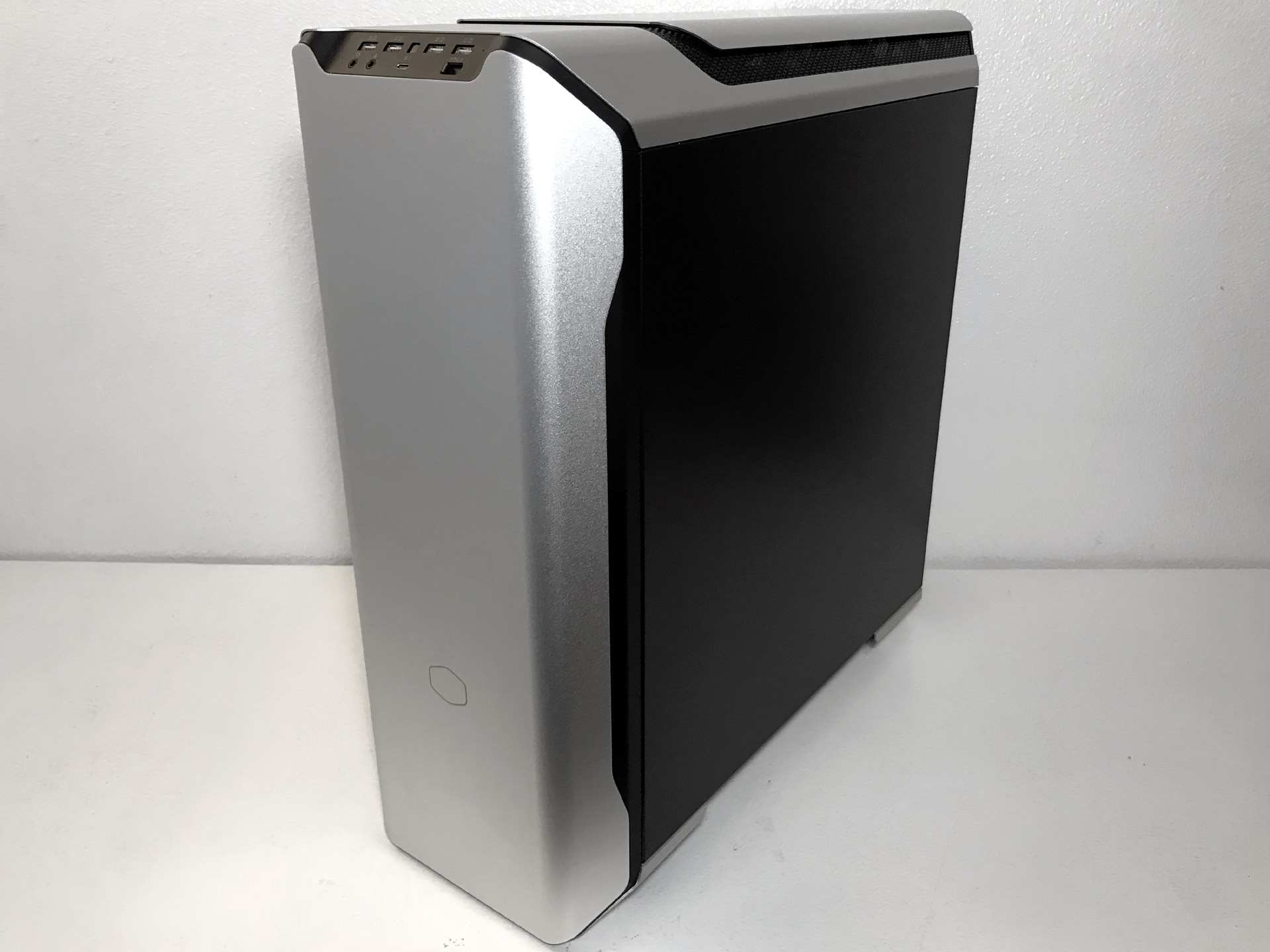
The Cooler Master SL600M weighs just under 30 pounds (13.6kg) and measures 22.6 x 9.5 x 21.4 inches (573 x 242 x 544 mm). The combination of sand-blasted aluminum panels and a tinted tempered glass door make for a strikingly handsome chassis. The top of the chassis is essentially two bare aluminum panels separated by a black metal mesh screen. The rear portion of the top panel can be removed for additional airflow.
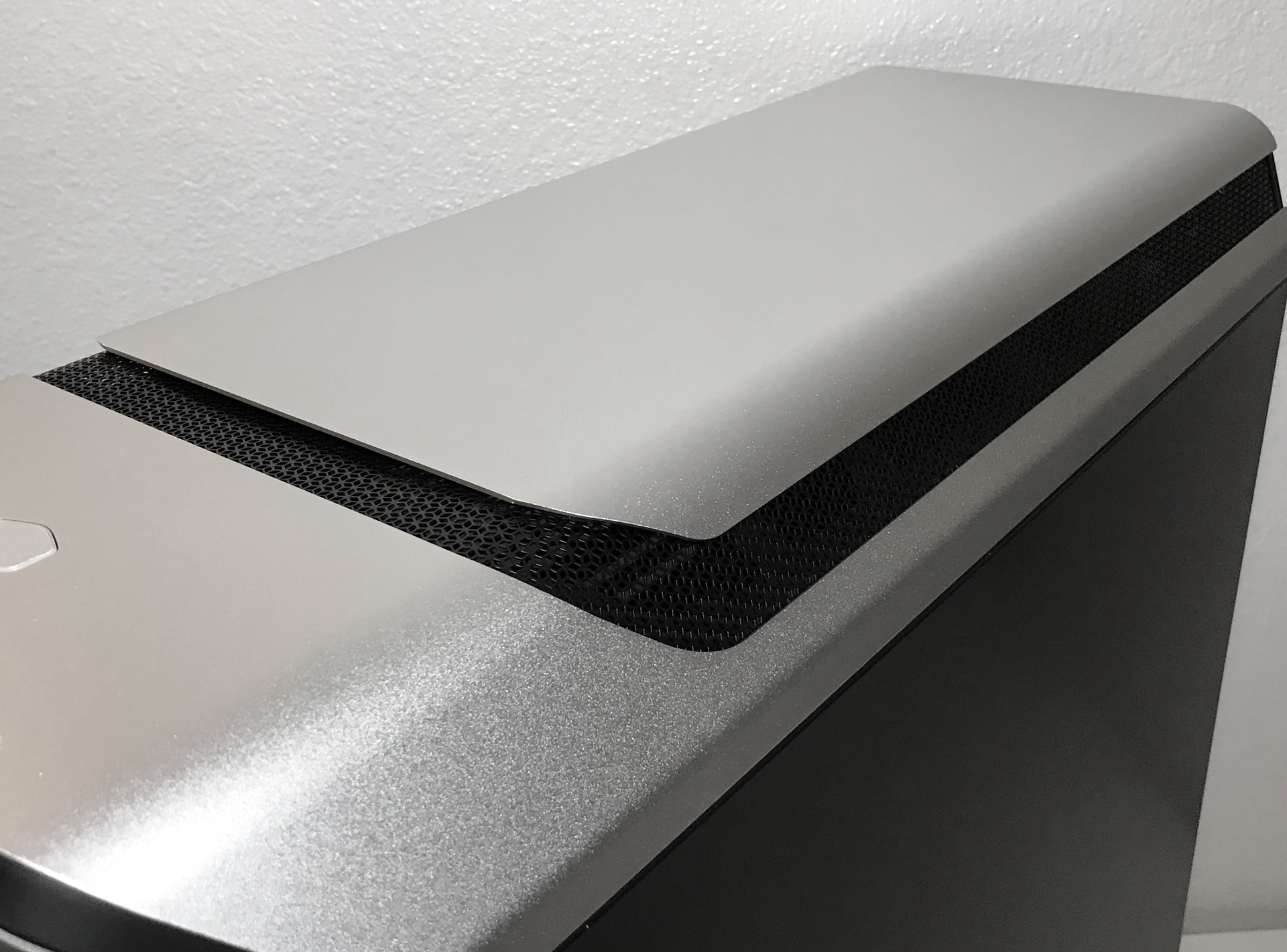
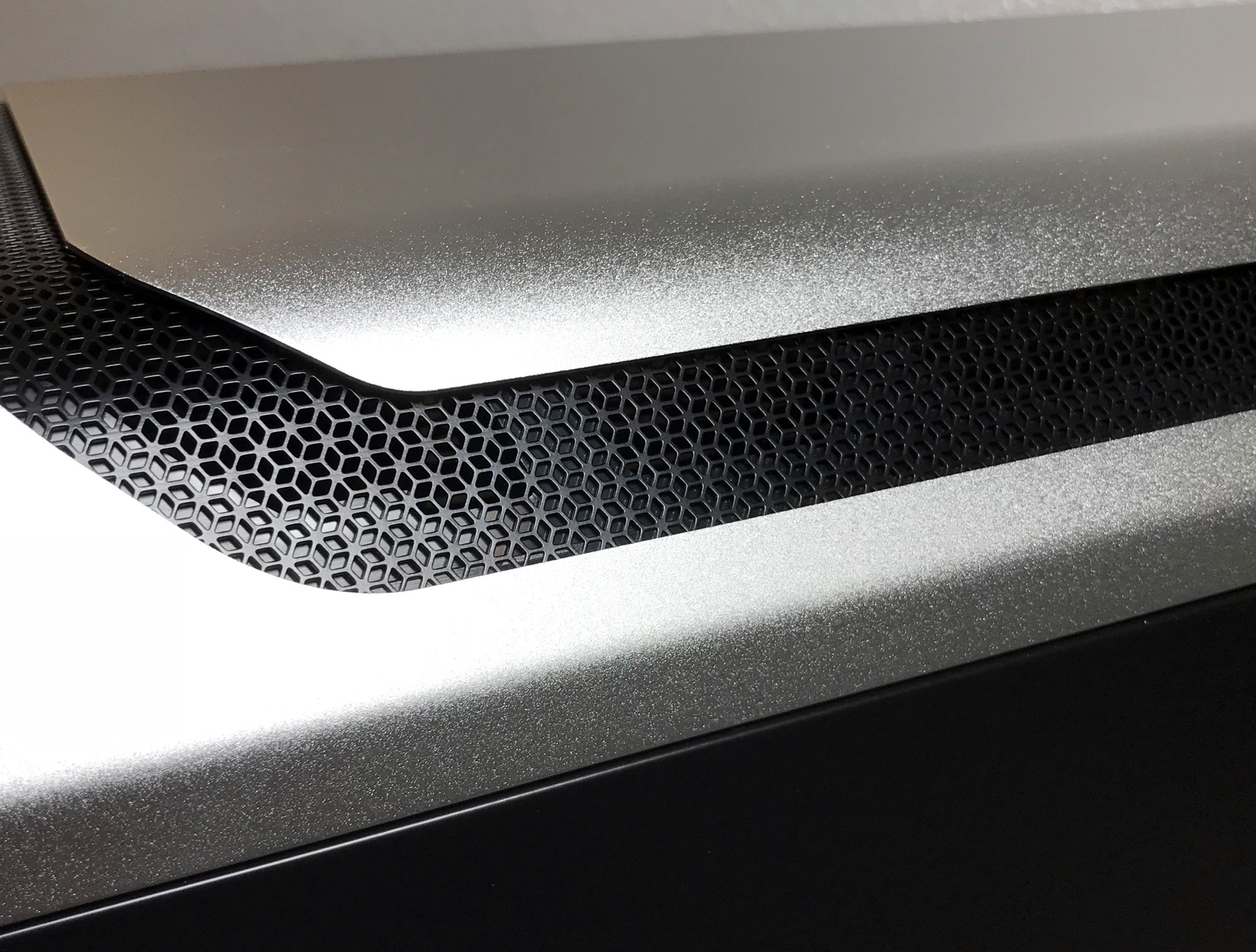
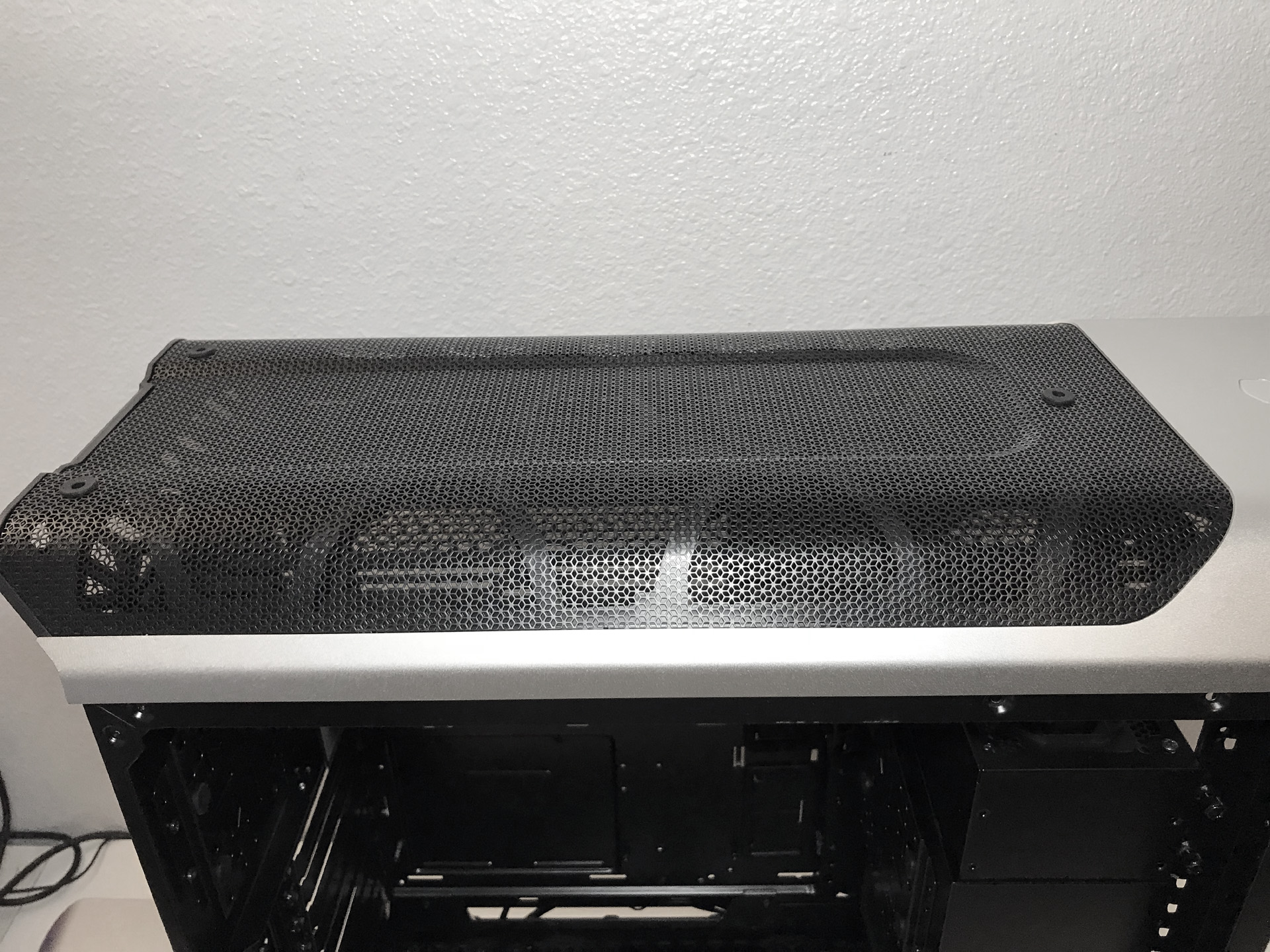
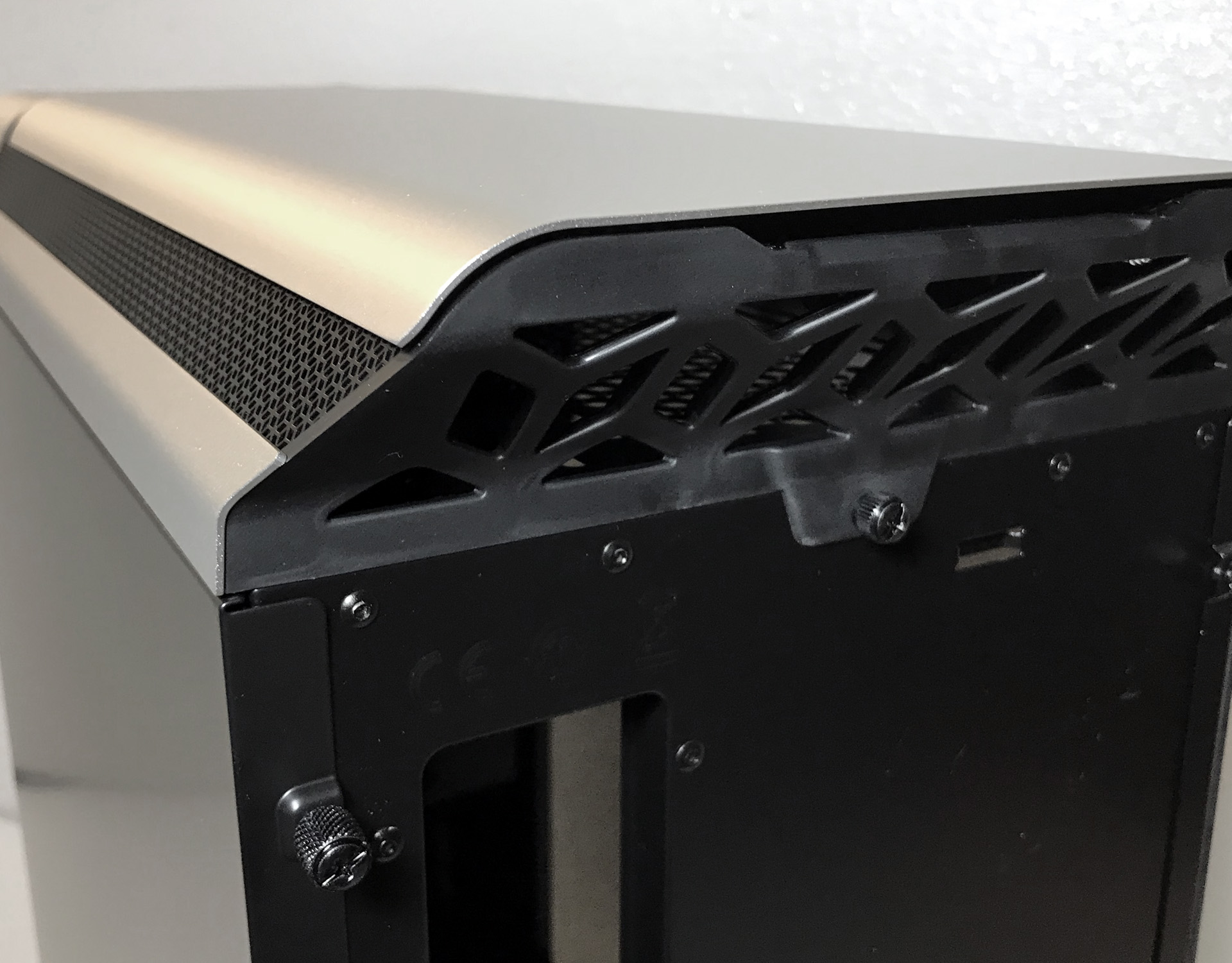
Sandwiched between the top and front panels are a USB 3.1 Type-C port, two USB 3.0 ports, a pair of USB 2.0 ports, headphone and microphone jacks, a fan speed switch, and power and reset buttons. You’ll also notice a small square proximity sensor nestled in the center of the USB ports.
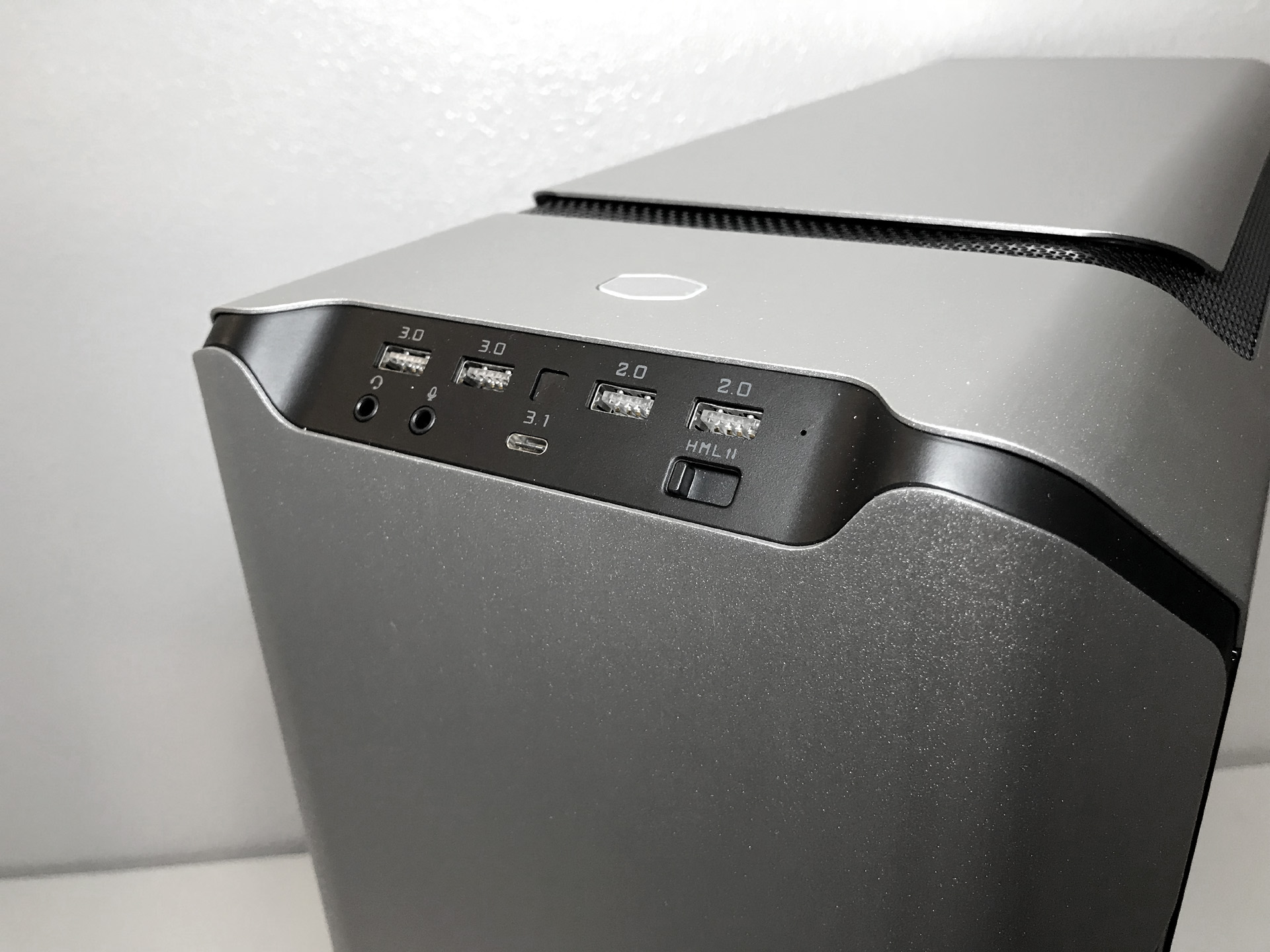
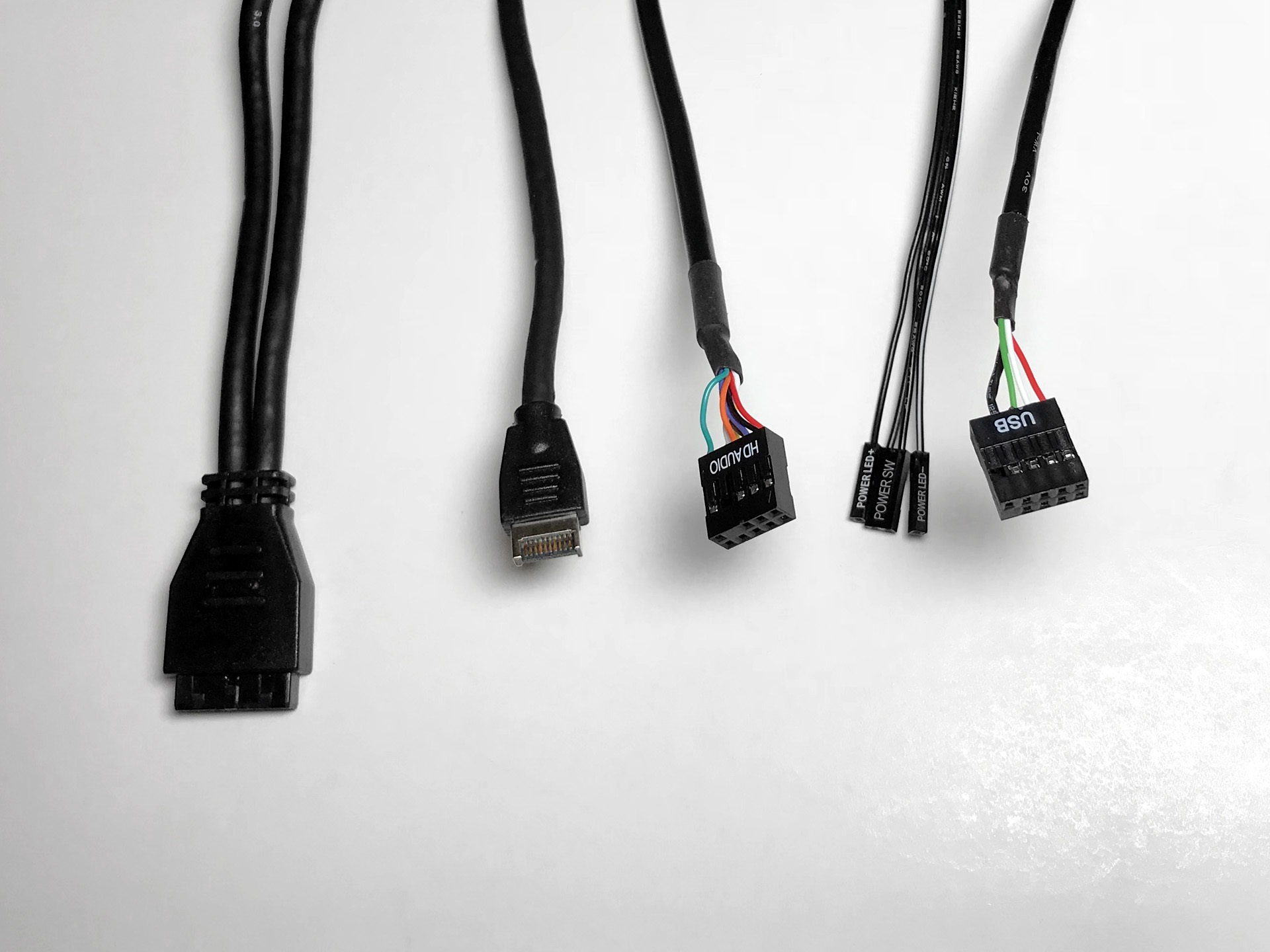
Triggering this sensor causes the USB ports to light up, making it easier to plug in USB devices in the dark. Removing the front panel is a simple matter of grabbing the lower edge and pulling out and away from the chassis. The front of the chassis is one solid aluminum panel.
The full-cover, tempered glass side panel is bonded to a metal frame and is darkly tinted. The entire assembly attaches to the frame via thumbscrews in the rear. The panel on the opposite side of the case is steel and painted black. This gives the chassis a very stylish symmetrical look.
Get Tom's Hardware's best news and in-depth reviews, straight to your inbox.
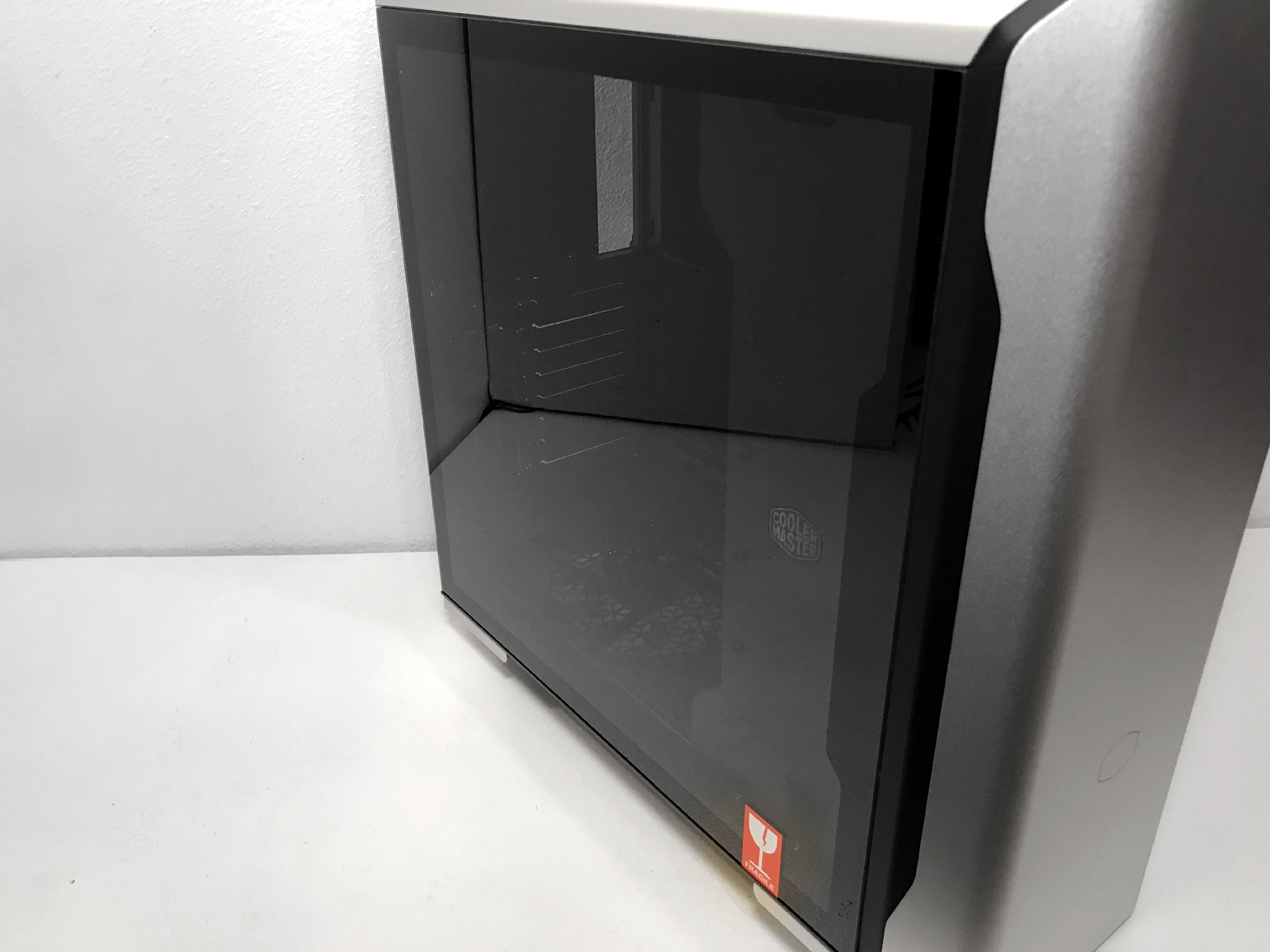
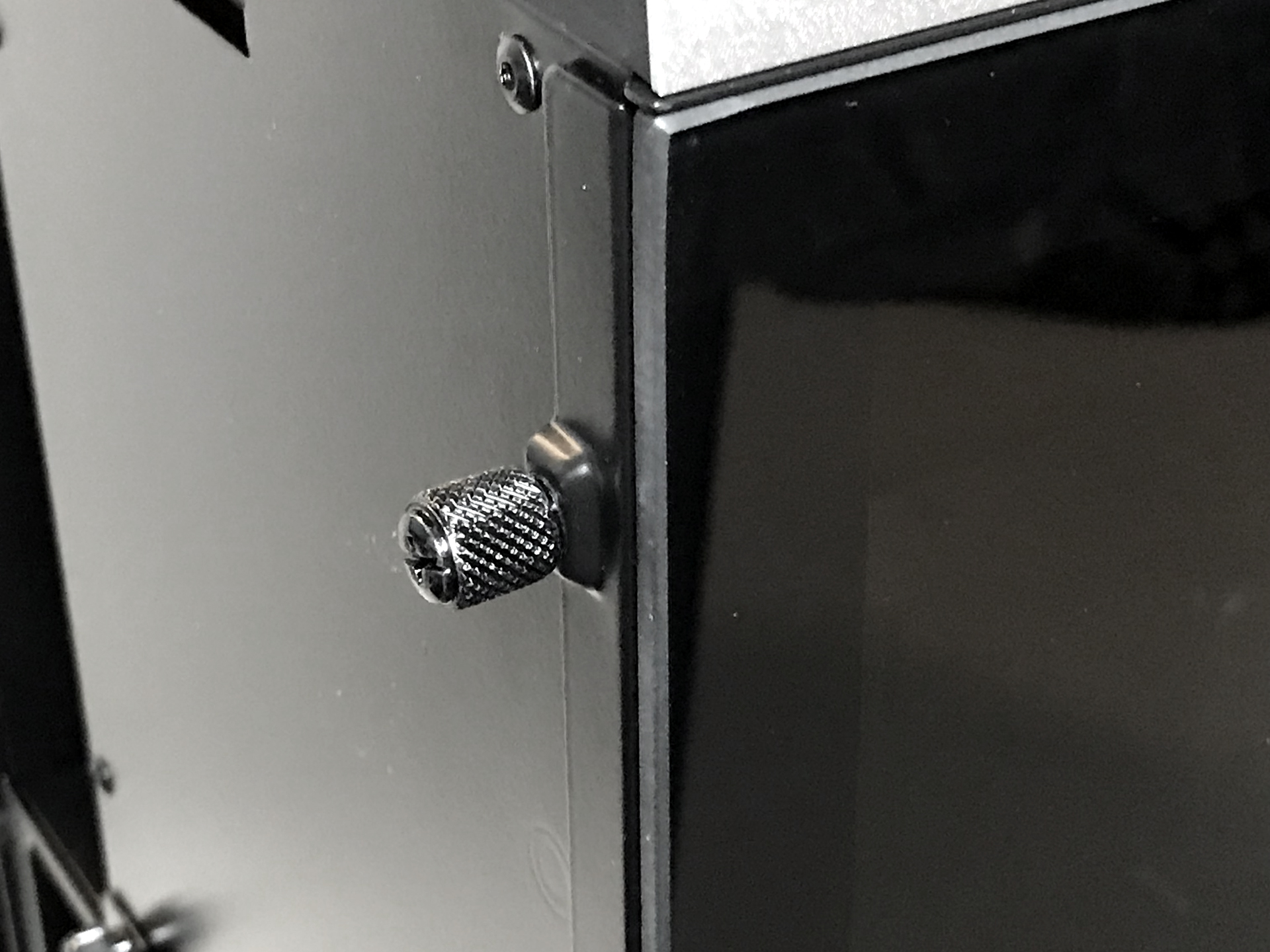
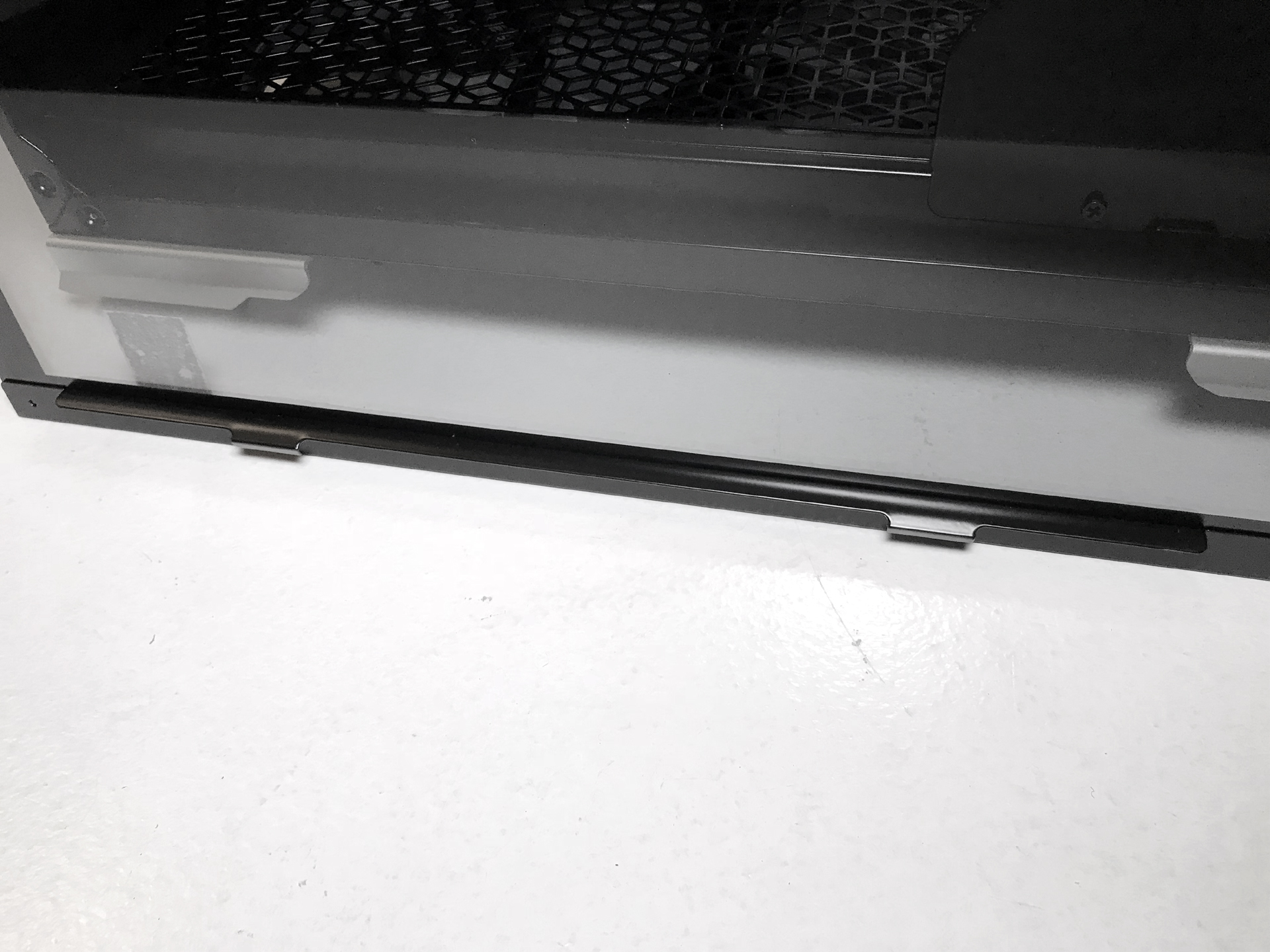
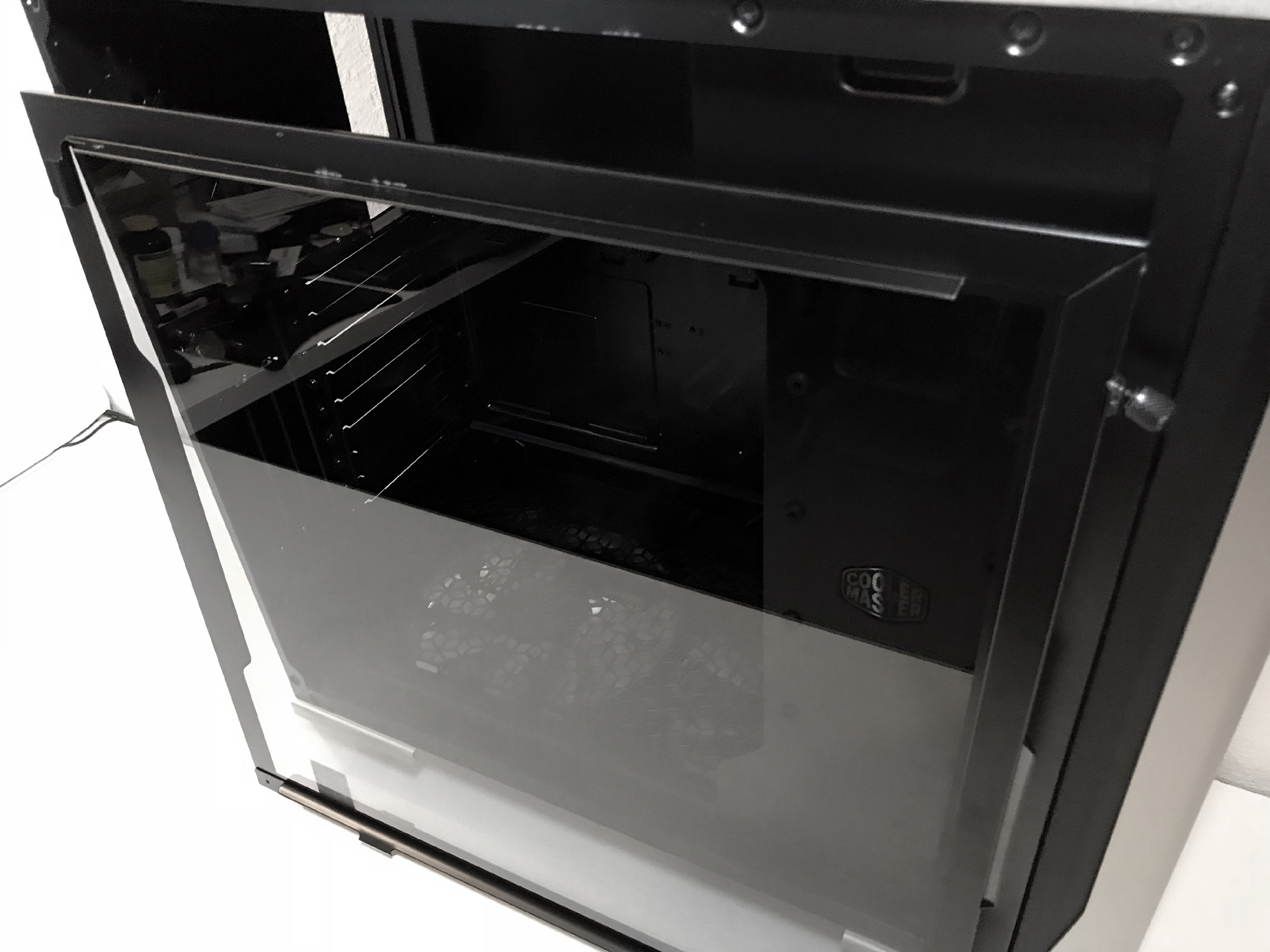
The rear of the chassis is a bit different from what you would normally find in a standard ATX mid-tower: Its nine expansion slots (plus two vertical) can be removed and rotated 90 degrees to the left so that you can install all your cards vertically. You will also notice the lack of mounting locations for a fan and PSU. We’ll cover that more later.
On the bottom of the chassis is a full cover plastic mesh filter that covers two large 200mm intake fans. The filter is hinged in the center of the case and can be removed from both the front and rear of the case. The two large, rubber-coated feet are made of aluminum and elevate the case approximately 2 inches.
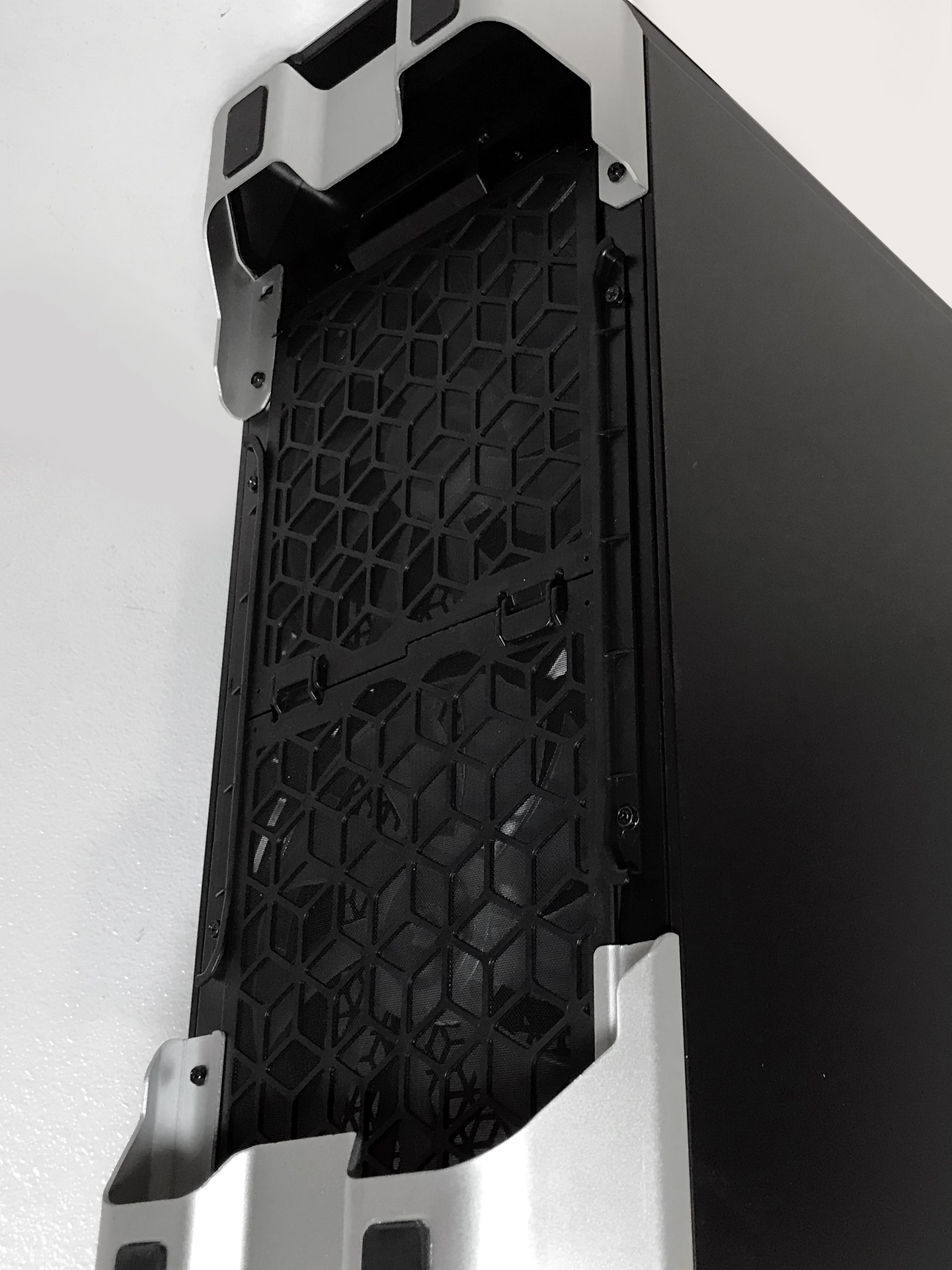
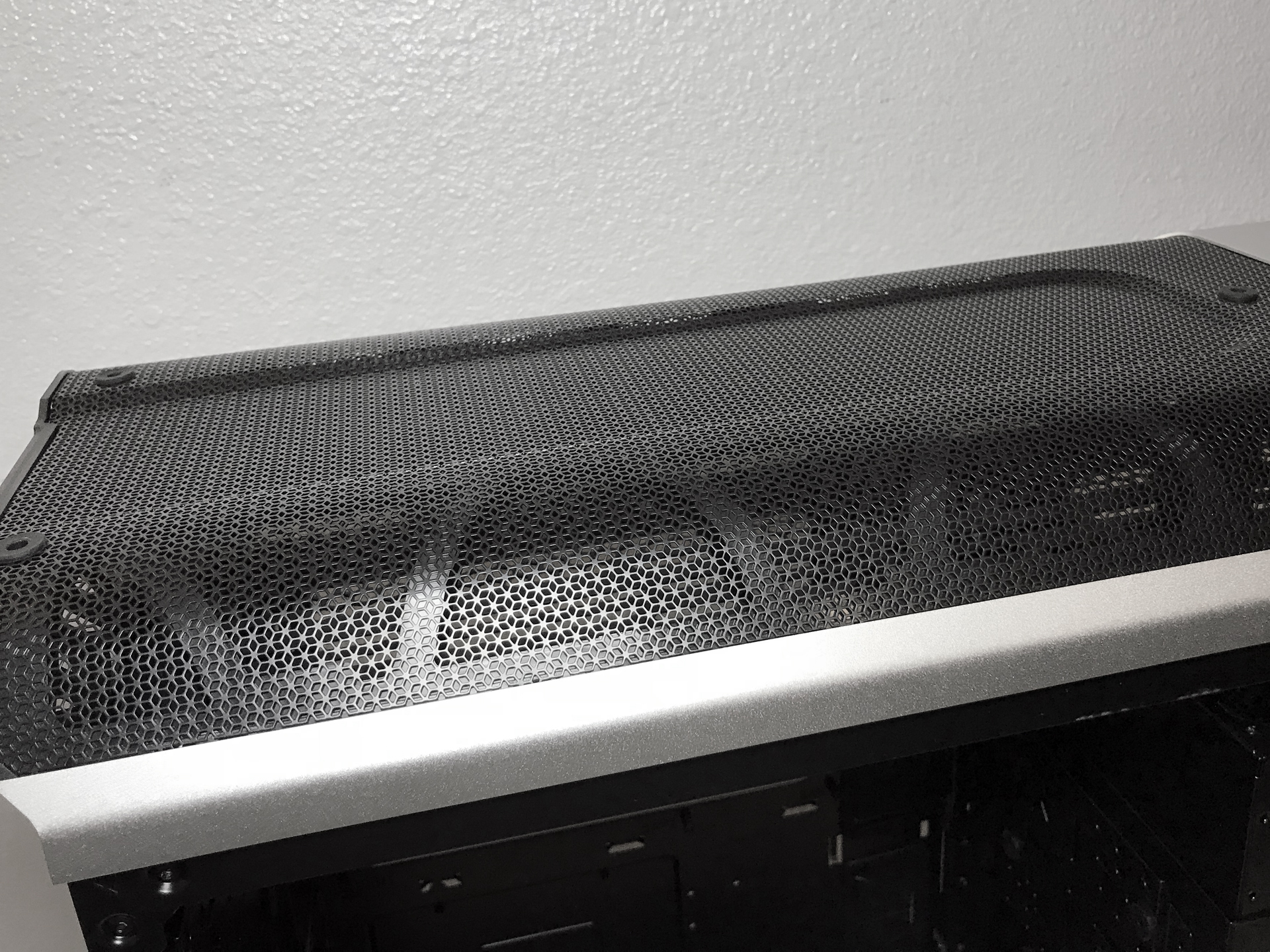
The fan-filtration system on the SL600M consists of a large one piece fan filter at the bottom of the case covering the massive 200mm intake fans and the black metal mesh in the top of the chassis we mentioned earlier. Cleaning and maintenance for the top panel is best done with the entire panel removed. The bottom filter is hinged in the middle and can be removed from the front or rear.
MORE: Best Cases
MORE: All Case Content
Current page: Features and Specifications
Next Page Hardware Installation and Test ConfigurationSteven Lynch is a contributor for Tom’s Hardware, primarily covering case reviews and news.
